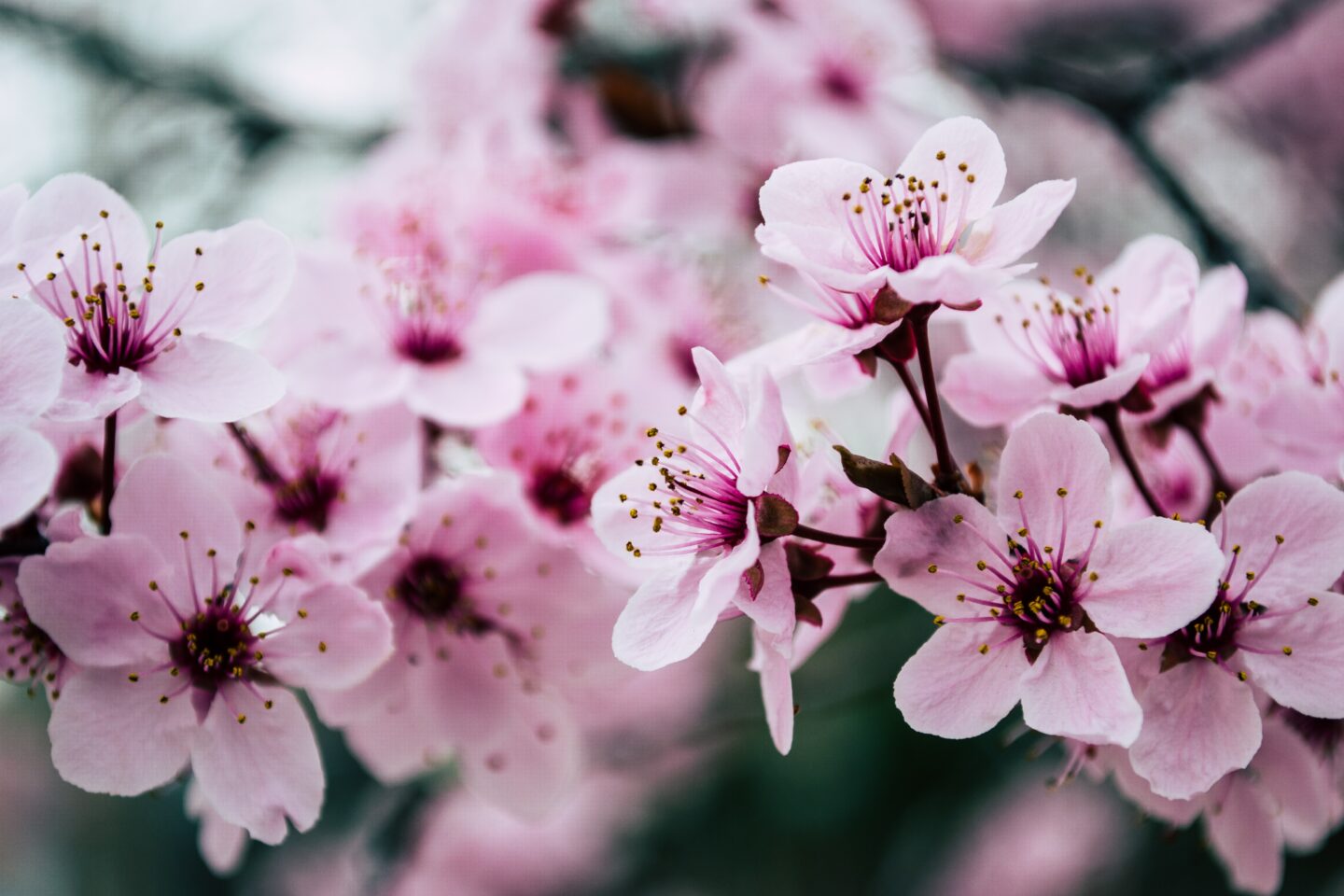Growing up in a mixed Japanese and American household, New Year’s was traditionally the time to appreciate one’s community, share old traditions and create space for new experiences. Literally and figuratively, getting rid of the grime from the prior year before crossing the threshold to begin again with renewed resolutions. Yet, for me, cherry blossom season holds more of the “out with the old ways that don’t serve us, and in with the new ways that do” sensitivity.
Walking in my neighborhood in the spring, seasonal change lends itself to waxing philosophical about life and impermanence. I appreciate the sweet smell of daphne odora that always makes me pause to linger in it’s intoxicating fragrance, but mostly I look forward to the sakura (cherry blossoms) that shock me into stillness when I come upon bursts of pink fluff on a tree lined street. In Japanese, the word “hanami” literally means ‘flower viewing’ and is a traditional Japanese custom, or really, more like an event when people take strolls and enjoy picnics together under the cherry blossoms. It is a shared appreciation of the transient beauty of flowers.
The symbolism of spring, showing us the ephemeral beauty of nature and human emotion, brings me both comfort and a sense of resilience every year. This is timely given our clinic’s transition to DPC on May 1. I am excited and hopeful about being able to provide the type of health care I went into the medical profession for, which includes getting to know patients better in the context of their lives. DPC is about focusing my attention, time and effort on caring for my patients using evidence-based guidelines that are individualized for each patient’s circumstances.
Dr. Kari Palmer
Family Medicine

